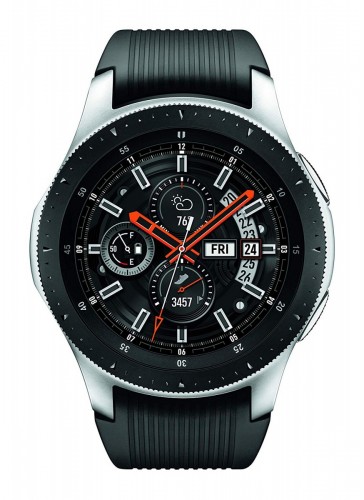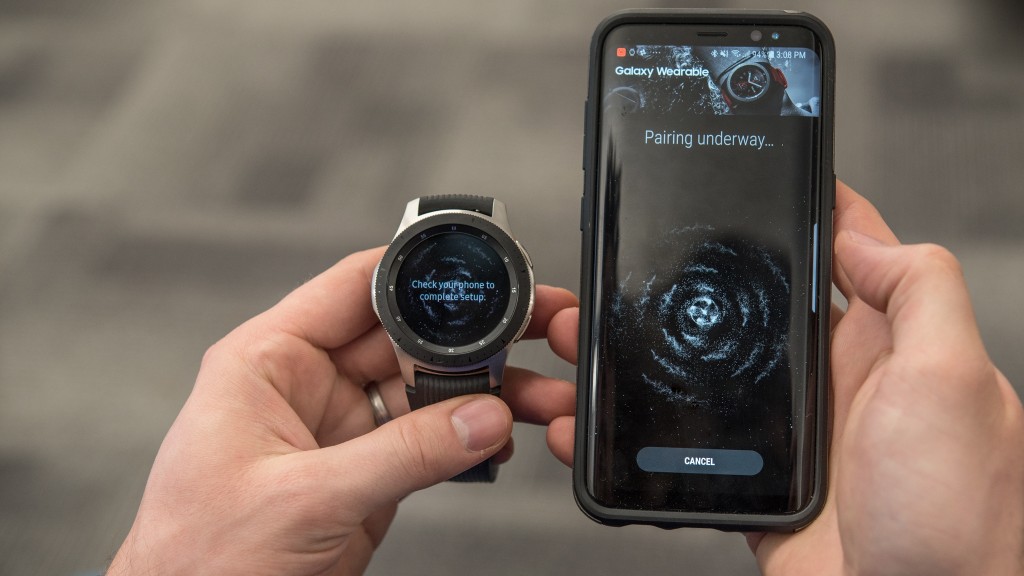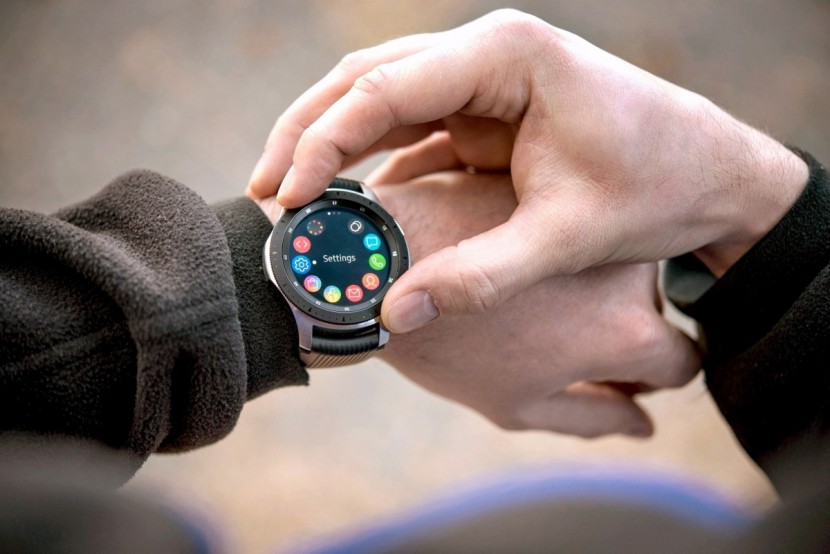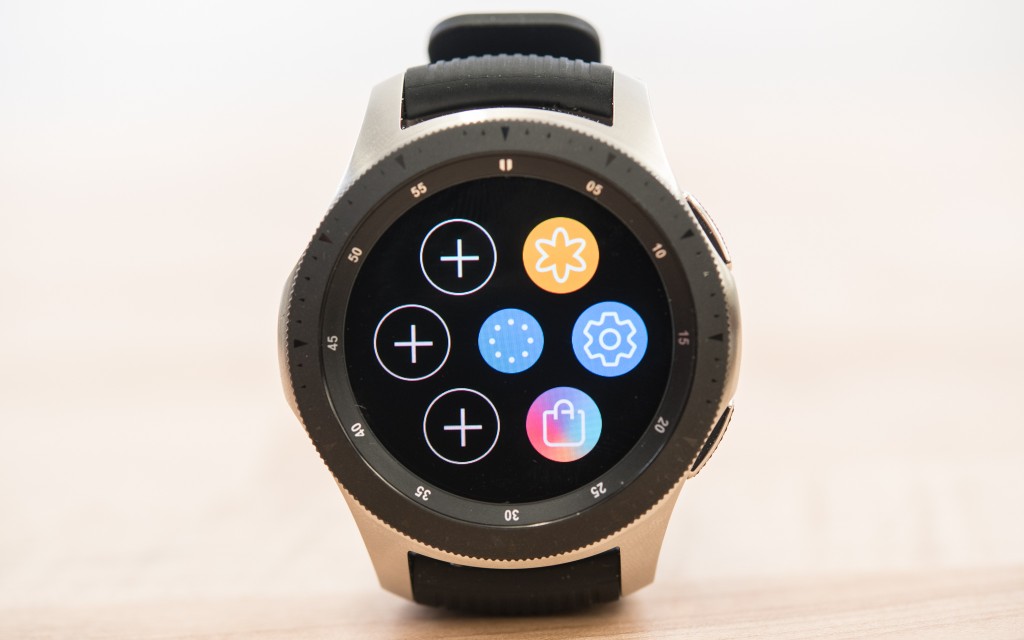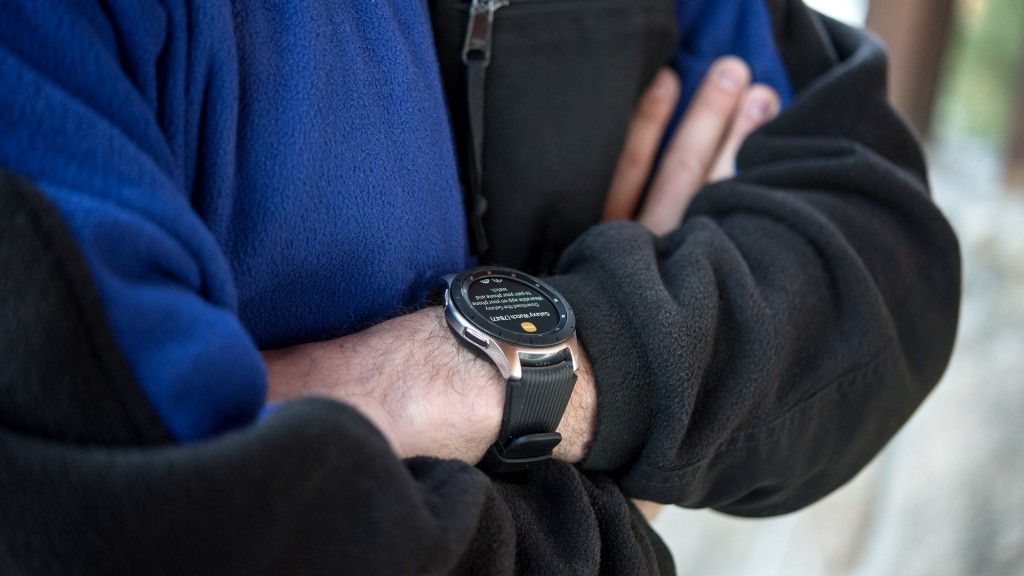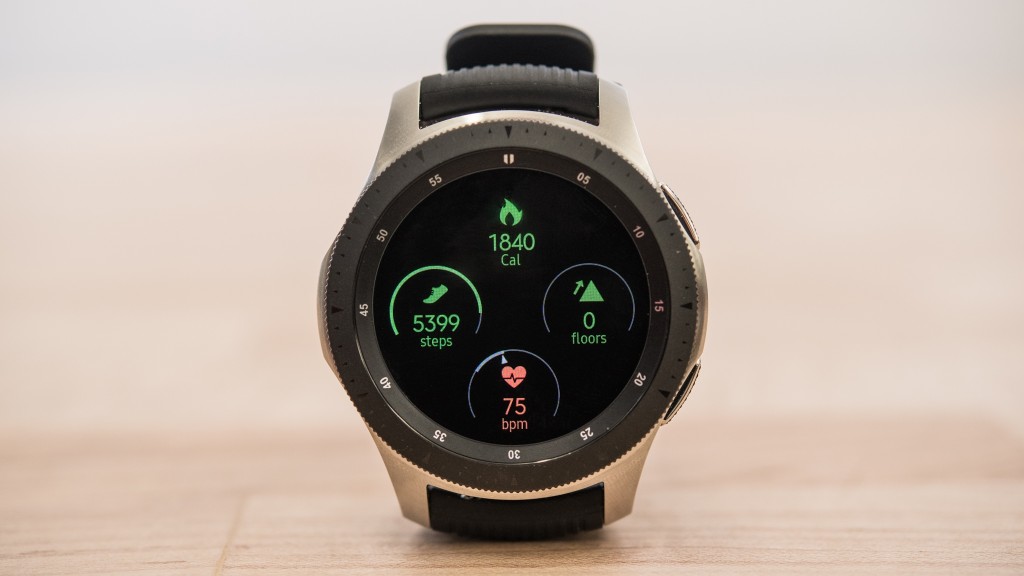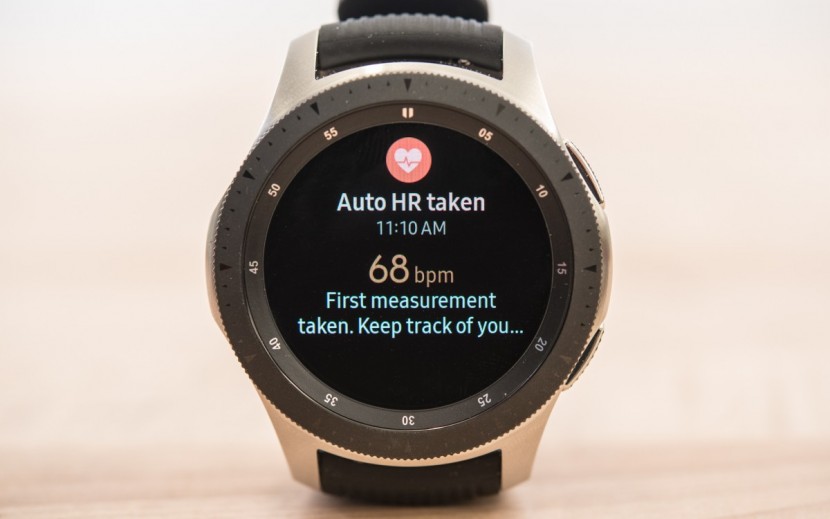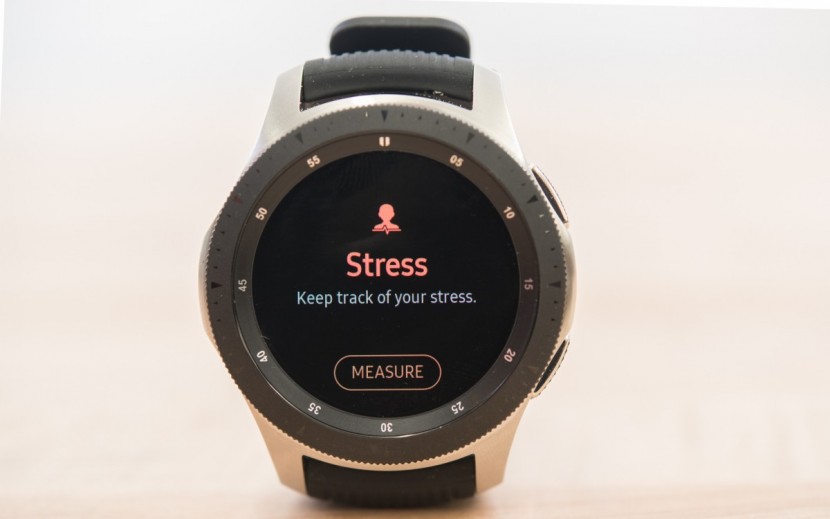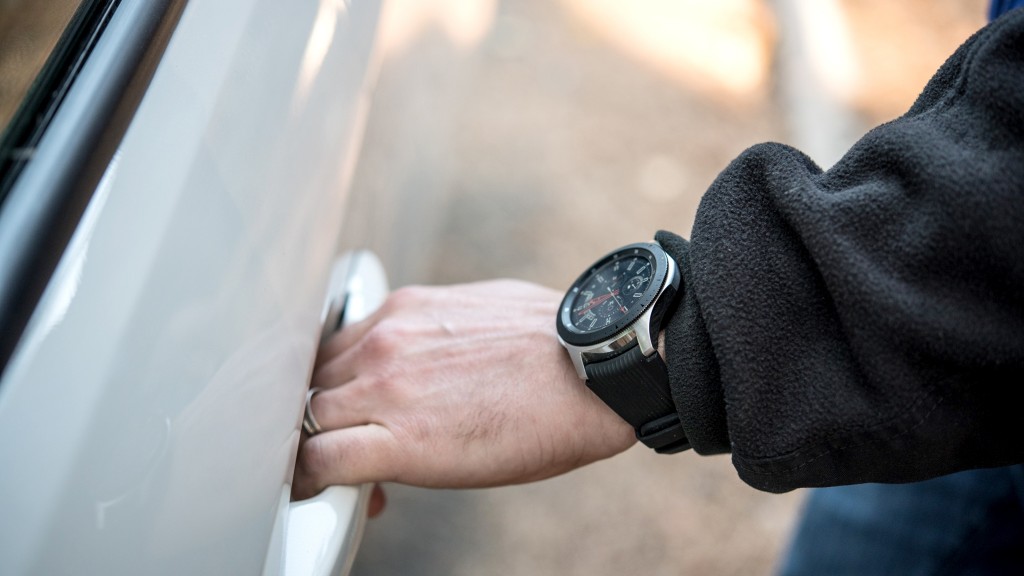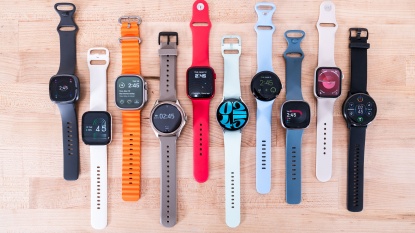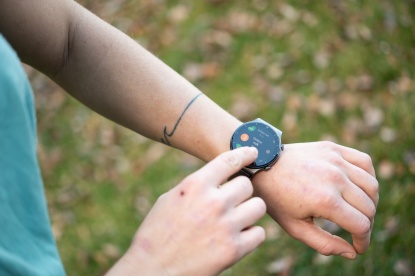Samsung Galaxy Watch Review
Our Verdict
Our Analysis and Test Results
The Galaxy Watch earned the top score overall, narrowly outperforming the Apple Watch Series 4 for the top spot and improving on the performance of the predecessors, the Samsung Gear Sport and the Gear S3. While the Apple Watch does have a slightly more comprehensive set of smart functions — better music control and more standalone apps — the Galaxy has a far better battery life, giving it the overall edge. This superior battery life is also what gives it an edge over the S3 and the Sport, in addition to its stronger showing in our smart functions test than the Sport.
Performance Comparison
To figure out which smartwatch is truly superior to the rest, we looked at tons and tons of different available products, then picked out the watches that exhibited the most potential, bought them all, and tested their performance against each other in a series of head-to-head evaluations. We split our testing procedure into five weighted rating metrics, with the results of the Galaxy Watch outlined below.
Ease of Use
Our most important testing metric when it comes to these products, the set of ease of use evaluations constitute 30% of the overall score for each smartwatch. We looked at how easy it is to navigate the menus and charge the watch, as well as its level of water resistance and how easy it is to swap wristbands. The Galaxy tied for the top spot in this testing metric, earning an 8 out of 10.
The screen on this smartwatch is highly responsive, immediately lighting up and waking the wearable when we raised our wrist and the touchscreen responding to our taps or swipes with no noticeable delay. In addition to the touchscreen, this watch also has a rotating bezel that can be used as an input method, which we found to be quite handy
This watch securely sits in a cradle to recharge. It is quick and easy to get set up and is hard to misalign when placing it in the cradle. It also is very easy to swap wristbands out, using the standard watch strap release mechanism.
Finally, this watch is also rated to a depth of 50 meters or 5 ATM and makes it very easy to capture a screenshot of the display, in case you need to preserve anything shown on the display.
Smart Functions
After our ease of use assessments, we moved on to looking at the different features that allow these watches to claim that they are smart. We looked at the compatibility with popular apps, if you can make or receive calls right on the watch, if you can complete transactions and use the watch as a mobile payment method, if you can control your music with it, and if there is a standalone GPS module integrated into the device. The Galaxy Watch didn't do quite as well as the last round of tests, earning a 7 out of 10 — mainly due to its relatively poor performance when it came to app compatibility. This metric is responsible for 20% of the final score for each smartwatch.
This watch is great for replying to messages, with even messages from apps like Facebook Messenger showing up like standard SMS messages and allowing you to reply with a small library of responses. This watch does have a standalone Spotify and Uber app, but many users have complained about the Uber app being quite buggy. However, there aren't yet standalone versions of apps like Shazam, Strava, Evernote, IFTTT, Instagram, or Twitter (or Twitter clones) that other top-notch smartwatches have.
The Galaxy did improve in the remainder of our tests for this metric, allowing you to take calls right from your wrist with decent speaker and microphone quality. You also have a decent set of music controls, but we did miss the fact that you can't mark a song thumbs-up or thumbs-down when using streaming services like Pandora.
This watch can be configured with Samsung Pay and does have its own GPS unit for standalone navigation or fitness tracking uses. Additionally, there is also an LTE version of this watch — for an additional cost — that allows you to use cellular and data services without being tethered to your smartphone.
Display
Next, we ranked and scored the screen of each smartwatch in our review. This accounts for 20% of the overall score for each product and is based on how easy it is to read the screen in both dim and bright conditions, the overall image quality on the screen, and the different brightness adjustments that the watch allows you to make. The performance of the Samsung Galaxy thoroughly rebounded in this metric, again tying for the top spot overall and earning another 8 out of 10.
The 1.3" 360x360 full-color AMOLED delivers an overall amazing picture, though we did find it just a tad inferior to the Retina displays of the Apple Watch. These specs are also for the larger 46mm version of the Galaxy, with the 42mm version delivering the same great picture, just a little bit smaller.
It's super easy to read this screen in both bright sunlight and in darker conditions. You also have the option of turning on an automatic backlight adjusting mode or an always-on mode, depending on what your personal preferences are or what activity you are doing.
Fitness Impact
For our fitness tracking tests, we compared the different trackable activities and workouts available on each wearable, as well as how accurate the Galaxy was at tracking our heart rate, steps, and stairs climbed in our testing period. This accounts for 15% of its overall score, with the Galaxy Watch again doing very well, earning another 8 out of 10.
This smartwatch did a stellar job at tracking our steps, showing a calculated count that was extremely close to the true count in each of our three one-mile tests. The largest difference was -25 steps, or about 1.2% under the true count and the best was -10 steps, or 0.05% under our manual count. We also found the heart rate sensor to be quite good, usually within 2 bpm of the number shown by our chest strap heart rate monitor. We did notice that the Galaxy is a bit more accurate at resting heart rates than active heart rates while working out. You can set the watch to always be monitoring your heart rate, measure it every 10 minutes, or disable it entirely — the heart rate sensor can be a significant drain on the battery, so this is something to keep in mind if you need the maximum battery life possible.
This smartwatch has 39 different workout modes that it can record data for. It will also automatically detect workouts rather than requiring you to manually start it fitness tracking and it can detect if you change activities mid-workout, like going from running to push-ups, and can store up to 6 different activities in each workout session. It can also provide voice coaching for some activities, like cycling. Additionally, it also has some other health tracking abilities, like measuring and estimating your stress level so you can track it throughout the day.
Unfortunately, this watch doesn't do the best at tracking the flights of stairs climbed, struggling in our test and missing several flights.
Battery Life
For our final metric, we evaluated the battery life of each of these watches. Looking at both how long the battery lasted and how long it took to charge, this metric is responsible for the remaining 10% of the final score for the Galaxy. It delivered an absolutely phenomenal performance, earning a 9 out of 10 for its superb battery life.
With normal use, we were able to get almost 5 full days out of this watch, or 118 hours. However, this can decrease with heavy use or if you are using power-hungry sensors, like GPS. However, you should still be able to get about 24 hours of use with the GPS on. We did test the 46mm version, with the 42mm version having a slightly reduced battery life.
This watch does take a while to recharge, requiring about three hours to completely charge and hitting the halfway mark after about 76 minutes on the charger.
Value
While this smartwatch is an all-around excellent product, there are definitely other products out there that are significantly cheaper and are a better bet if you are shopping on a tight budget.
Conclusion
Overall, the Galaxy Watch should be the first smartwatch you should consider if you have a Samsung phone. It is intuitive and easy to use, with a thoroughly impressive suite of health and fitness tracking skills and a fantastic display. While it might look a little out of place on the most petite wrists and is a little pricey, it is still undeniably one of the best products we have seen to date in this category.


